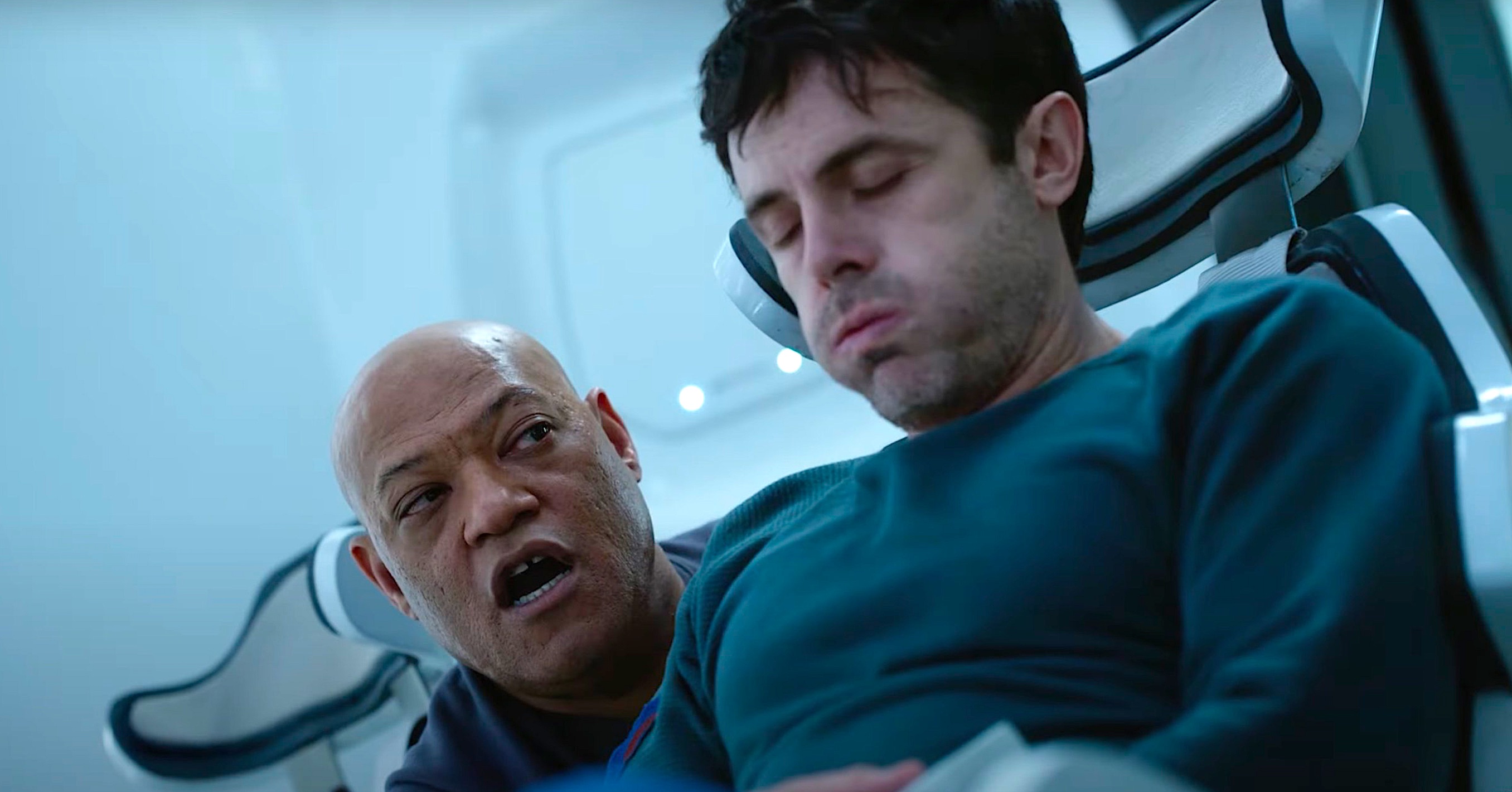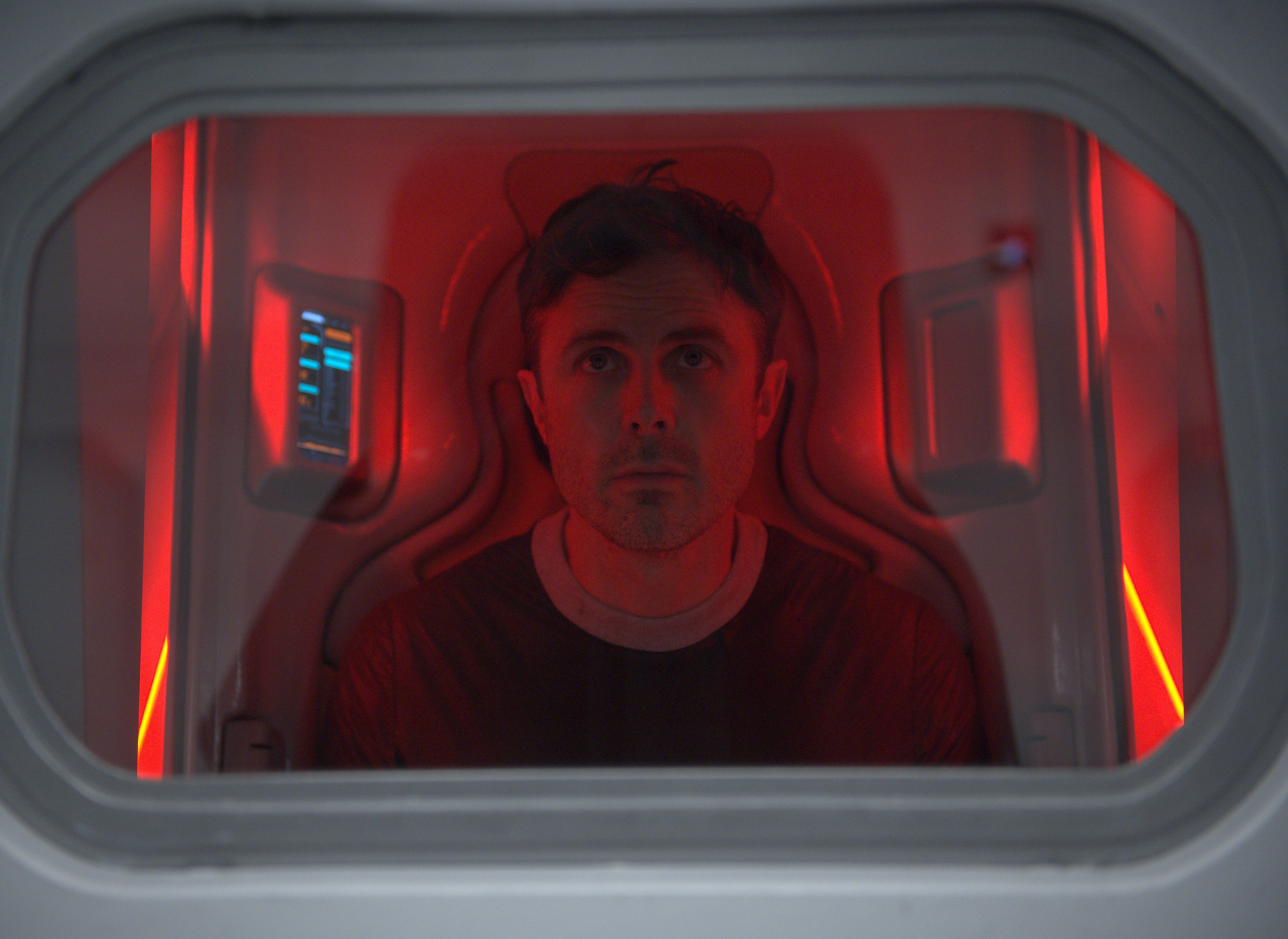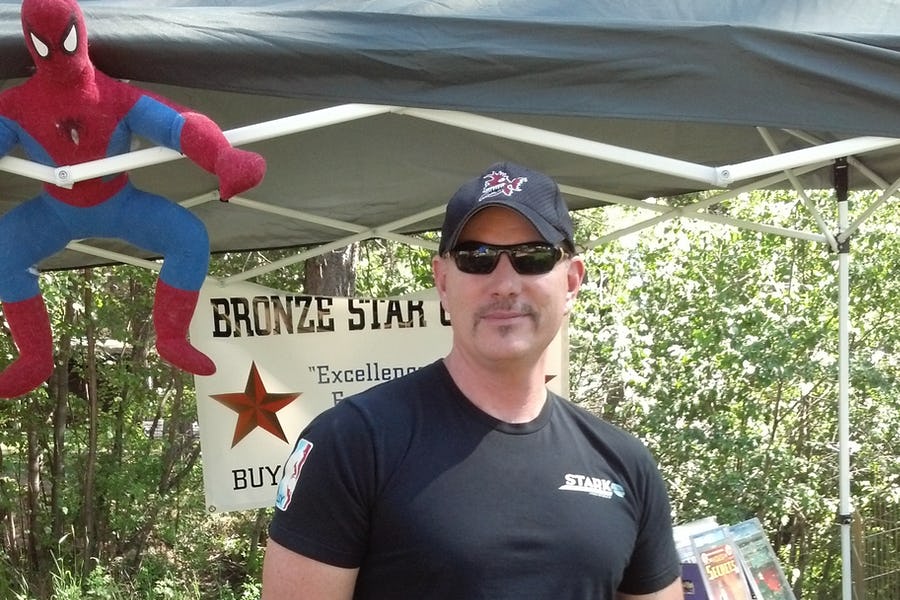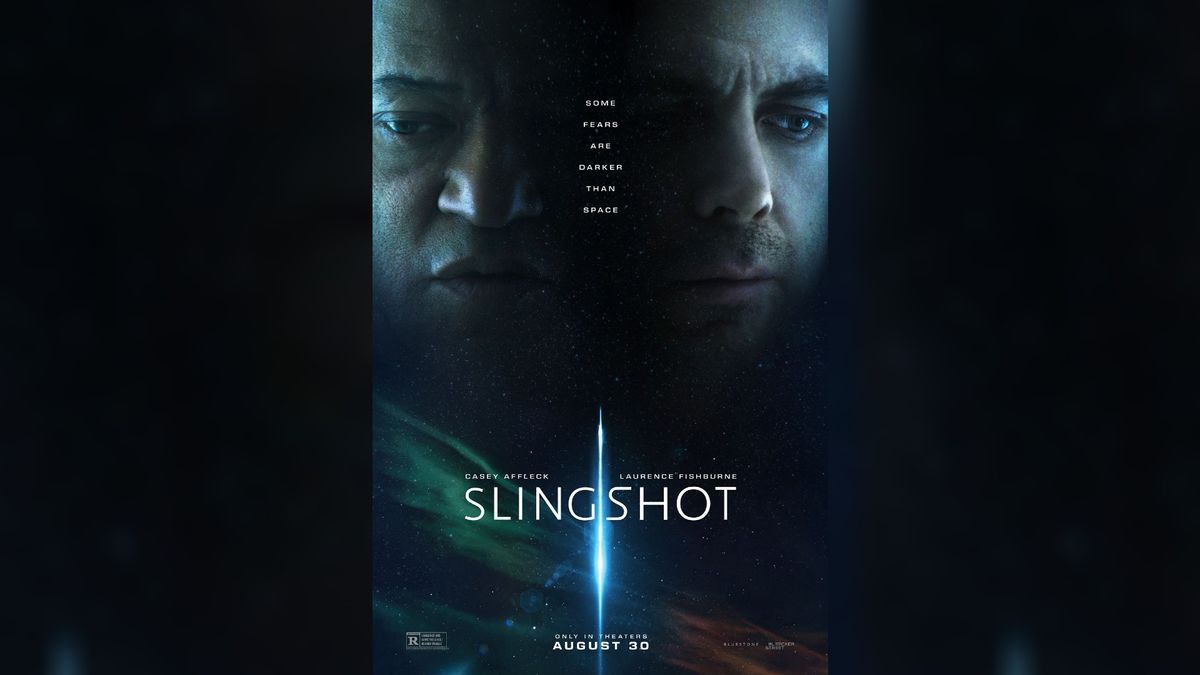'Slingshot' exclusive: Director Mikael Håfström discusses his haunting new sci-fi thriller

The isolation, anxiety, and loneliness of extended human spaceflight, recently explored in films like Netflix's "Spaceman" and the Apple TV+ series "Constellation," can be a debilitating side effect, and it's one that's examined in disorienting detail in Swedish director Mikael Håfström's new sci-fi thriller "Slingshot."
Starring Casey Affleck, Laurence Fishburne, and Tomer Capone, "Slingshot" opened in theaters on Aug. 30 from Bleecker Street. It revolves around three distinguished astronauts aboard the Odyssey 1 spacecraft en route to Titan, the largest moon of Saturn. The long voyage requires a gravity-assist maneuver around Jupiter, and as the astronauts prepare for this dangerous move, one of them begins to have hallucinations caused by hypersleep drugs that make him question reality. These unsettling visions increase in intensity, threatening the mission's goals.
Håfström ("The Rite," "Escape Plan") is very familiar with these themes of mental deterioration in stressful situations, as he was the director of the 2007 supernatural film "1408," which was adapted from a Stephen King short story of the same name and starred John Cusack and Samuel L. Jackson. In that disturbing horror classic, Cusack plays a disillusioned writer who debunks paranormal lodgings when he investigates a haunted hotel room in New York City and meets his match.
"Slingshot" was written by R. Scott Adams ("Donner Pass") and Nathan Parker ("Moon") and joins Hollywood's trend of sci-fi projects dealing with sad astronauts in peril and coping with the cold truths of traveling within the uncaring void of outer space. As humans journey farther from our tiny corner of the galaxy beyond the confines of our Earth-moon system, attention is now being diverted toward the long-term psychological effects of space travel on astronauts.
Related: Take a mind-bending trip to Titan in exclusive 'Slingshot' featurette (video)
"It's relative to '1408' in the way that it's a contained space and a psychological drama in an environment where you can't really get out from, because you're in the room or in the spaceship in complete isolation in space," Håfström told Space.com.
"I've always been drawn to that kind of story," he added. "There's something challenging making something in such a contained area. It's very interesting to work with actors in that sense. There's very little physical room to maneuver, so you need to work in a different way. I had the script for quite some time before we actually got the chance to make it. But I always carried it with me for all these reasons. It could be on a deserted island or anywhere, but now it happens to be in space. It's not 'Star Wars' or anything like that. When people see the film, they'll understand more about what I'm talking about. You need actors that can bring it home, and we were lucky."
Breaking space news, the latest updates on rocket launches, skywatching events and more!
In preparing to shoot "Slingshot," Håfström was emphatic about trying to accurately portray the science of space travel and employed a professional consultant to assist in the research process.
"One of the great things in my job is that you venture into different areas in every new film you make," he noted. "We obviously had a science advisor, who read the script, and we had discussions about things that were a bit of a stretch, or ways to easily change things that can make it more believable for people who actually have a great knowledge of space. You don't want to piss people off that actually know about these things. We're not making a documentary, but as much as you can get right, you should get right, and there's satisfaction in that."
When it came to the spaceship sets, Håfström and his crew wanted to do something state-of-the-art and looked to current space technology to provide a level of realism.
"We tried to make it our own thing but tried to take inspiration from designs of different space vehicles that exist today, then pushed it a few years into the future," he said. "We were talking to people who knew much more about this than we did, that came with good ideas. We tried to show respect to what we were doing."
The unraveling of a person's mental state and emotional stability, especially in the context of space exploration, is a topic of great fascination for the acclaimed filmmaker and one he attempted to convey with the utmost intensity.
"I think space travel is a great arena for telling these kinds of stories, because you are physically in isolation," Håfström explained. "But you don't need to go to space to be isolated or feel solitude or live in loneliness. Everybody can have that period in their lives or are forced into that situation, and we can all identify with that. This is times 1,000, because you're in the middle of space and can't open the door and go out. It's pushed to its absolute limit in those situations. A lot of people find that scary and fascinating, and we don't really know because we haven't gone that far yet. We've gone to the moon, which is a pretty straightforward trip nowadays. But beyond that, what will happen to the human mind when we venture out further?
"This is also a love story in many ways. It's a film about longing. Casey's character has left things behind. I always saw the backbone of the script as dealing with questions about what is love and longing and the choices we make. Putting it in space makes it very on-the-nose in a good way, and you have to cope with the situation, or not."
Related: The best space movies of all time

Fortune favored "Slingshot" in the exceptional acting talent of the limited cast. It includes not only Affleck, Fishburne and Capone but also co-stars Emily Beecham and David Morrissey.
"You're a director and not a magician, so you need actors that can bring something special," Håfström said. "Casey and I had long discussions about this beforehand. You need actors like Laurence Fishburne, who brings his own amazing persona and attitude and intelligence to the project. You feel blessed as a director when you have actors like that. Working collectively like we did, the three of us on that ship, was a very satisfying experience."
"Slingshot" arrived in theaters on Aug. 30.

Jeff Spry is an award-winning screenwriter and veteran freelance journalist covering TV, movies, video games, books, and comics. His work has appeared at SYFY Wire, Inverse, Collider, Bleeding Cool and elsewhere. Jeff lives in beautiful Bend, Oregon amid the ponderosa pines, classic muscle cars, a crypt of collector horror comics, and two loyal English Setters.


